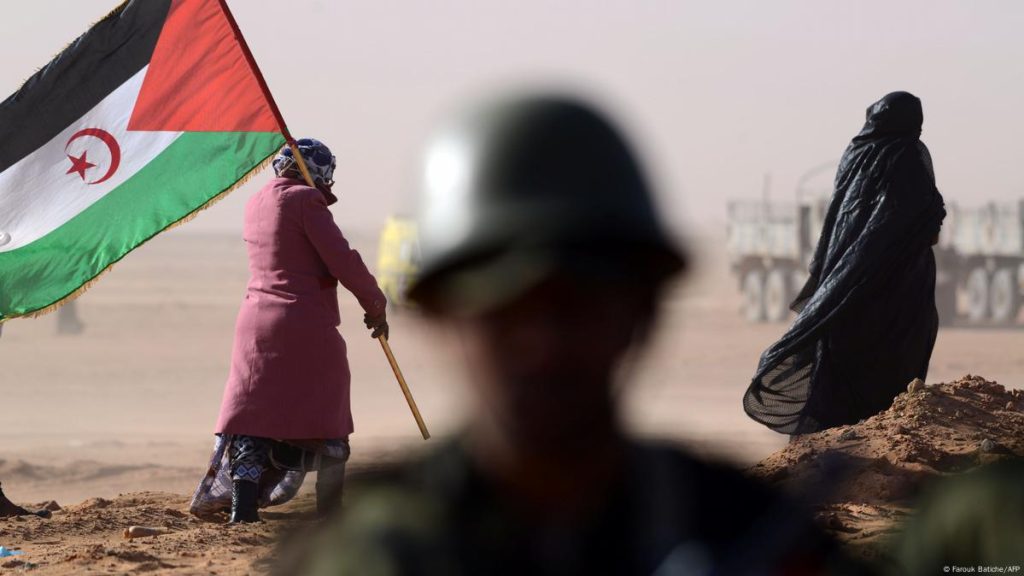France Expresses Support for Moroccan Sovereignty Over Western Sahara
3 min read

French President Emmanuel Macron recently reaffirmed his support for Morocco regarding the long-disputed territory of Western Sahara. Speaking to Morocco’s parliament, Macron declared that he believes Western Sahara should fall under Moroccan sovereignty and committed to investing French resources in the region.
Western Sahara, located on the northwestern coast of Africa, has been a contentious issue for decades. Once a Spanish colony, it is predominantly controlled by Morocco, while the Algeria-backed Polisario Front claims to represent the indigenous Sahrawi people and seeks an independent state.
France, which has historical ties as the colonial power in both Morocco and Algeria, joins several countries, including Spain, the United States, and Israel, in supporting Morocco’s sovereignty claim. Macron’s remarks were met with applause from lawmakers during his address in Rabat, where he stated, “For France, this territory’s present and future fall under Morocco’s sovereignty.”
This statement marks a notable shift in France’s longstanding position regarding Western Sahara. Macron emphasized that Morocco’s plan for autonomy within its sovereignty is the “only basis” for a fair and lasting political resolution.
The French president’s endorsement has incited anger from Algeria, which responded by recalling its ambassador from Paris. Algeria views Morocco’s presence in Western Sahara as an illegal occupation, further straining relations between the two nations.
Analysts suggest that France’s alignment with Morocco may be an effort to mend diplomatic ties that have soured recently. Tensions escalated after allegations surfaced that Morocco attempted to spy on President Macron, leading France to impose stricter visa regulations for Moroccan visitors.
The diplomatic landscape between Morocco and Algeria has deteriorated significantly in recent years, particularly after Algeria severed diplomatic relations with Morocco in 2021.

In his address, Macron also touched upon France’s colonial past but refrained from issuing a formal apology. He acknowledged the darker aspects of their shared history, stating, “The time came for unequal treaties, when the hubris and force of European countries imposed themselves around the world.” He noted that Morocco, even under a protectorate, could not escape the impacts of colonial ambition and violence.
In a sign of strengthening ties, France and Morocco are reportedly finalizing agreements in various sectors, including energy and infrastructure, with a total value estimated at up to €10 billion (approximately $10.8 billion). Macron also promised unspecified “investments and sustainable support initiatives” aimed at benefiting local populations in Western Sahara.
Macron’s visit to Morocco was an invitation from King Mohammed VI, who had previously expressed optimism regarding France’s evolving stance on Western Sahara, describing it as a “significant” development.
However, Algeria has condemned France’s position, arguing that it denies the Sahrawi people’s right to self-determination. The Polisario Front has similarly criticized France for endorsing what it terms Morocco’s “violent and illegal occupation.”
The conflict over Western Sahara dates back to Morocco’s annexation of the territory in 1975. A protracted insurgency by the Polisario Front culminated in a UN-brokered ceasefire in 1991, which included a promise for a referendum on independence that has yet to be realized. Disagreements over the referendum’s conduct and eligibility have stalled progress.
Today, the African Union remains the only international body to recognize Western Sahara as a sovereign state, further complicating the geopolitical dynamics in the region.
As France and Morocco strengthen their partnership, the implications of Macron’s support for Moroccan sovereignty will likely reverberate through North Africa, impacting regional diplomacy and the ongoing quest for resolution in Western Sahara.